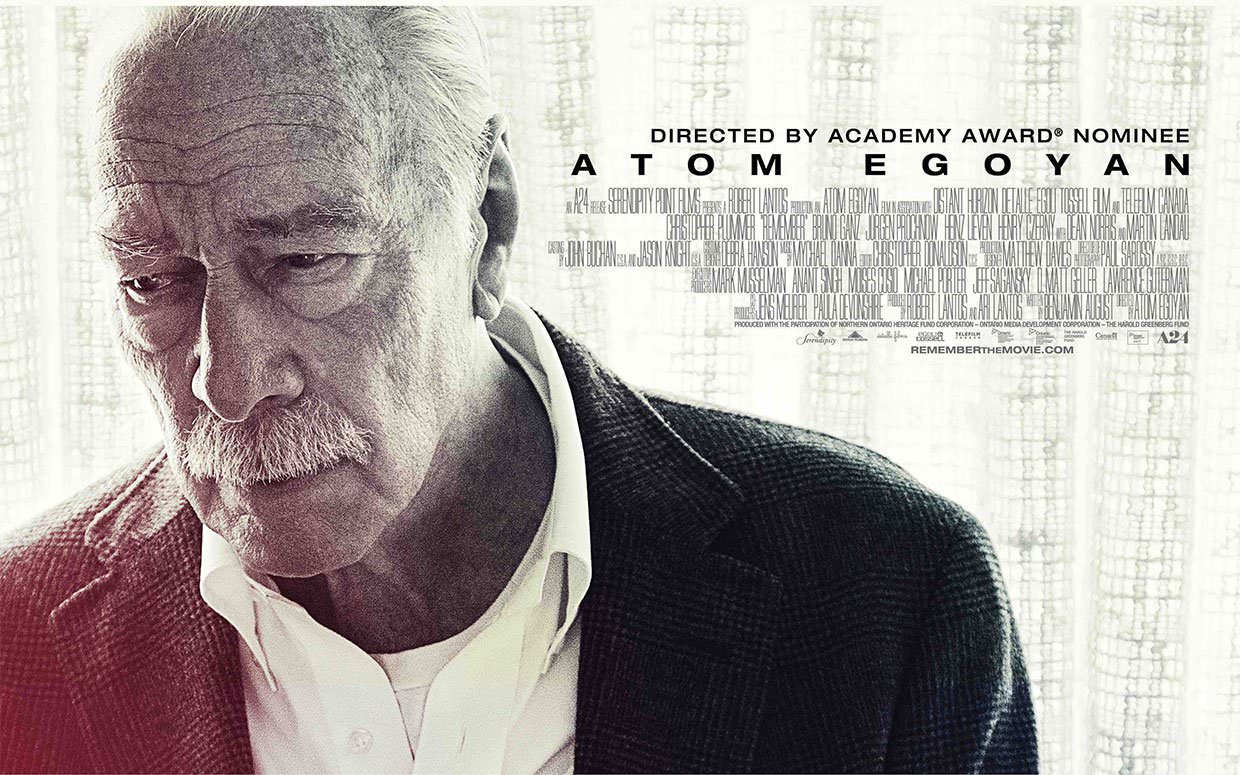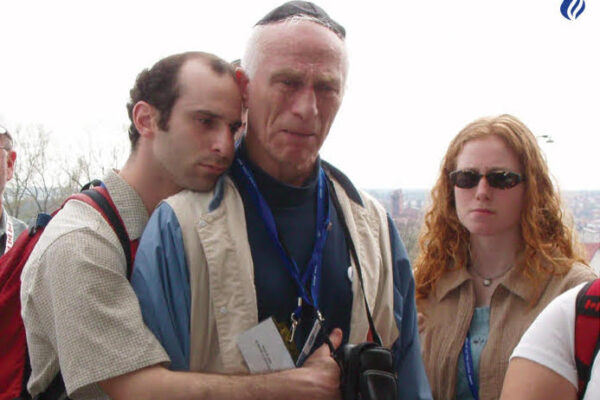The Holocaust film Remember is set in the present. The thriller contains no flashbacks. It takes place entirely in North America. And yet Remember is also one of the most powerful and unique Nazi revenge films to come around in a long time.
At the movie’s center are two Holocaust survivors Max (Martin Landau) and Zev (Christopher Plummer), living out the end of their days in a retirement home. Max may be frail and hooked to an oxygen tank, but he’s unstoppable and intrepid in his quest to hunt down the vicious guard at Auschwitz who was responsible for his family’s murder. Zev has dementia but is physically able to get around.
When Max masterminds a plan for his friend Zev to go on an elaborate quest to find and take revenge on the guard, their lives are transformed. The film masterfully manages to be an epic in scope, but is also intimate. Plummer and Landau deftly portray these nuanced characters and provide the great opportunity to see two acting titans with serious movie cred deliver knock-it-out-of-the-ballpark performances.
Atom Egoyan, Remember’s prolific director (Chloe, The Sweet Hereafter) talked to Parade and shared his thoughts on Christopher Plummer, Martin Landau and why Remember is so timely.
Why did you believe that Remember should be made now?
The last of the victims and perpetrators are still amongst us. Obviously, in five years this film couldn’t be made in the present day. I felt that there was an urgency to it, especially if you read the headlines now. If you look at these trials in Germany—of the last of the cogs of the Nazi machinery—it really raises the issue, what does justice mean? And is there any way that we can ever hope to continue to learn from this history, and continue to understand that there is a tremendous amount of anger. There is still a tremendous amount of rage that a victim can still be living with.
Normally, when you think of old men at the end of their lives, there’s some sense of reconciliation. But in the case of the Max character, played by Martin Landau, there’s still this feeling of rage. Here’s a person who worked with the Simon Wiesenthal Center all his life doing it the right way. And at the end of his life he understands it’s a provocative issue. It is just such a harrowing tale.
Often, you direct films that you have written. But Remember was written by Benjamin August. What attracted to you direct it?
Remember was quite astonishing and original. It’s so simple. My scripts tend to be very fractured and multi-layered. I was drawn to this very deceptively simple narrative that held so much complexity in these characters. This was something I was looking to do. I couldn’t ever write that myself.
In some ways Remember seems to be a film that we’ve seen before—about a Holocaust survivor dealing with a traumatic experience. But it takes such an unusual approach. You come to realize that neither of these two characters are exactly who they seem. It was also interesting that Christopher Plummer’s playing a character who has no subtext. Because of his dementia he’s just living in the present. That’s all he’s able to really absorb. And yet the history that he carries is quite incredible, but he doesn’t seem to have any access to it.
What was it like working with Christoper Plummer and Martin Landau?
These two actors are at their peak. They’re both playing these demanding roles and are invested in exploring characters that have not been portrayed before. Neither of these characters bears any resemblance to anyone you’ve ever read about in a novel or seen in a film. They are unique characters.
How do you go about making your films, especially ones you have written?
With the films that I’ve written I kind of torture myself over whether or not a story deserves the amount of time and devotion that any feature takes. It’s not just writing, finding the money, getting a cast onboard, shooting and then promoting it. It starts with a story. There has to be a sense that the story is going to hold my attention for that period of time. That at no moment will I feel that this isn’t the story worth telling. That to me is a challenge.
There are scripts that I’ve written that I’ve enjoyed writing and I’ve decided not to pursue them as films because I exhausted my interest at the script stage. The films that I make, I’m excited about further exploring through the process of casting and actually making the film. Remember was an unusual script because it was very much intact. And yet I knew that I needed two towering performances to make it come to life.
When did you know you wanted to write and direct?
I knew from a really young age. I was always involved in writing plays at school from the age of 12. I was blessed to have a teacher who was writing and directing plays and encouraged me to do the same. It felt that it was a great way of organizing behavior around me and making things fit in a way that they didn’t in real life. I found that that was incredibly therapeutic.
When I was 12, my teacher wrote play called A Robot and there was a character called Atom. I was playing a character that was named after me and that was mind blowing. My friends had their real names, and yet we were playing these characters that were constructed by a very generous teacher who was telling a story about a boy who found a living robot in a Christmas box.
When I started writing plays, most of them were abstract ideas. Then I remember writing a play in my late teens, and I suddenly felt I was completely overwhelmed with these characters—they were people that I knew. Suddenly I was controlling their destiny and making them behave in a certain way. I had that responsibility and it felt so charged. It felt like such a gift to be given that responsibility.
Do you believe that no matter who they are or what they do, you have to like and believe in your characters?
Yes. What’s fascinating about Remember is that you feel a tremendous sense of empathy. You are on this extraordinary journey of trying to come to terms with your own sense of what you expect from a character.
Originally published HERE.










